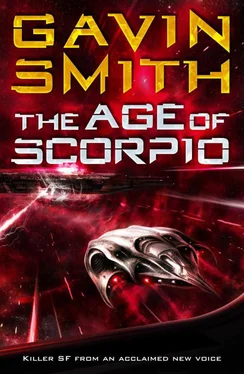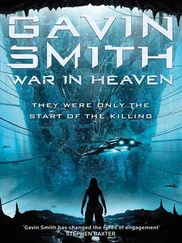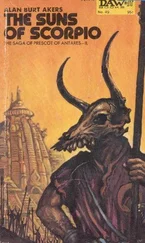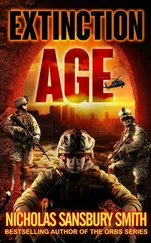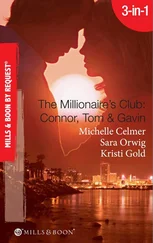‘I got a text during the fight, but the phone’s systems quarantined it and didn’t pass it on.’
‘Someone was trying to hack you?’ Alexia asked and sat down next to him.
‘It’s from her,’ du Bois said, sounding confused. It had been sent moments before the bag lady had died.
The bag lady’s jamming during the fight had confused du Bois’s blood-screen but even through the jamming he had been aware of Alexia. The bag lady’s systems were more sophisticated than his; she too must have been aware of Alexia sneaking up on her with his gun.
Du Bois ran a security diagnostic on the quarantined message. There was nothing there as far as he could see. More to the point, the file was tiny. He opened the message.
‘I hope a good death is enough,’ Alexia read. ‘I don’t deserve a good death. I am a coward. I am too connected to leave. No, that is a lie. I am too frightened to leave and I do not want to become a ghost frozen in brass. There are so few of us left now. You must do the right thing. I have faith in you.’ Alexia stared at the screen and then at du Bois. The message was signed with an unfamiliar name.
‘Do you suppose that’s her real name?’ he wondered.
‘Couldn’t she just have committed suicide?’
‘She had to die in battle. She was a lot older than us.’
He took another drag on the cigarette. It was a long time since he had been this badly hurt, perhaps even back when he was just a normal human. He noticed one of the pay-as-you go phones he had been checking was switched on and his mobile had automatically called it.
He heard a ringing from behind him. Coincidence, surely. He craned his neck. Every movement hurt. Further up the beach he saw a figure he vaguely recognised. Du Bois magnified his vision, and DC Mossa, the detective who had first told him about Natalie, came into sharp focus. She was frowning as she looked at a ringing mobile. She pressed and held down a button. The ringing stopped and du Bois saw that the phone he had been calling had just been switched off.
‘Have you still got my pistol?’ he asked. Alexia handed him the .45. Water dribbled out of the barrel. He would have to strip it down and clean everything later. He dried it as best he could on the coat a paramedic had lent him and stood up, shrugging off the coat. He limped towards Mossa.
‘Malcolm?’ Alexia got up to follow him. Mossa looked up as he approached.
‘You look like shit.’ she said. Then she noticed the gun in his hand.
‘What’s… What the fuck?!’ Du Bois pointed the gun at her. Mossa had been loud enough to draw attention to herself. People saw the gun and came running. There were firearms officers present. They knew Mossa. They didn’t know du Bois, who found himself with MP5 sub-machine guns levelled at him. After the beating he’d just taken, they didn’t seem all that frightening.
‘I don’t care,’ he told her earnestly. ‘I just want a name, and it won’t get taken any further. You don’t give me a name and I’ll blow your head all over the beach.’ After all, she didn’t know that the gun was empty.
There was lots of shouting. Du Bois frowned. He wanted to hear what Mossa had to say.
‘It was you on the phone?’ she asked. He nodded. She looked at the gun and saw the resolve in du Bois’s face.
‘When I phoned in to re-task the police working the roadblock to help me raid the dog stadium, someone made a call from Kingston Crescent on your phone to another pay-as-you-go in the Tipner area, as close to the old dog stadium as triangulation could make out. You tipped someone off. I want to know who. Tell me and I’ll make sure that you don’t get prosecuted and you get to retire on full pension. Don’t tell me, and I blow your head off and find out anyway.’
There was more shouting. The only reason du Bois hadn’t been shot was that some of the senior officers on the scene thought they knew what he was.
‘McGurk,’ Mossa finally said. It was obvious from the reaction of some of the officers around them that what she had said made her dirty. Guns were lowered. Du Bois’s .45 wasn’t.
‘Where can I find him?’
25. A Long Time After the Loss
Even with the window polarised, the light pollution spilling into the large sparsely furnished marble office turned the two figures into shadows, like the negative of an old photograph.
‘You know what you are asking me?’ the Elite demanded.
‘I’m not asking you,’ the tall figure behind the desk said.
‘Because my copy demands it?’
‘No, because slavery is the price of great power.’
The Elite turned and walked to the window looking out into brightly-lit orbital space. Inter-starscraper vehicles looked like tiny black bugs lost in the sea of light.
‘This is a waste,’ the Elite said, and then sought his way through the glass. There was pain. His master was well defended.
A grotesque, an outlander, reaching for her, the needle in his hand, and she knew he was going to wipe her. Kill all her achievements in the Game, make the Absolute lose interest, deny her communion. Why was she helpless? She had her bone knife, a discreet thorn pistol, her body was laced with elegant and deadly virals; but the needle got closer until it filled her vision.
‘Zabilla?’ Dracup said gently. Her eyes flickered open. Internal narcotics dealt quickly and efficiently with the rising panic. Dracup was gazing down at her, but there was some vestige of paranoia from the dream that had her mistrusting how he looked at her. Beneath the concern, she thought she saw something new – towards her, anyway. A callousness. She bit back the anger. He was a fool if he was growing tired of her now while she was so close to such a major triumph in the Game.
More worrying was that the Absolute could not have failed to monitor the dream now that she was so important to the research into the cocoon. She wondered if the dream was a warning, the price of failure. Then she wondered if such thoughts were treasonous, if for no other reason than not being entertaining enough. Besides, she could not imagine that the punishment for failure would be so mundane, so private and over so quickly. She would surely become a public spectacle, entertainment, and the most galling thing would be that all those she had beaten to get where she was today would be there to enjoy her fall.
The fear was gone now, thanks to the drugs, and had been replaced with irritation.
‘A dream, nothing more,’ she told Dracup as she got up. She missed her old apartment. A not unattractive sculpted root structure made up two walls of their well-appointed apartment in the bunker down among the roots, but it could not make up for the loss of the view. She could not see the other atmosphere-piercing arcology trees. There was not that green quality to the light as the sun shone down through the translucent leaf canopy above, nor the bioluminescent glow at night. There was little of the Game to amuse her, just research. Down below the black leaves, she might as well have been one of the morlocks who served her. She got up and made her way towards the shower nook. The roots shifted, opening at her approach.
‘Be careful that your subconscious does not betray you,’ Dracup said.
Zabilla spun to face him. ‘What’s that supposed to mean?’
He was immediately conciliatory. ‘Just that we are being monitored closely…’
‘Do you not think I know that?’ Why are you saying this out loud? she left unspoken.
‘And now is not the time for a treasonous subconscious.’
‘And what exactly would you like me to do about it?’
‘More drugs?’ he suggested. Again he sounded reasonable, but again his suggestion just irritated her. Like everyone in the Game, she was used to altering her mood with chemicals, whether to enhance sensation, as a less controllable alternative to immersion theatre, to enhance performance, or just to remain seemingly calm in the face of other players’ moves. But other than performance enhancers, which would eventually make her crash, she needed to be able to focus without distraction. Mood-changing drugs dulled her wits.
Читать дальше
